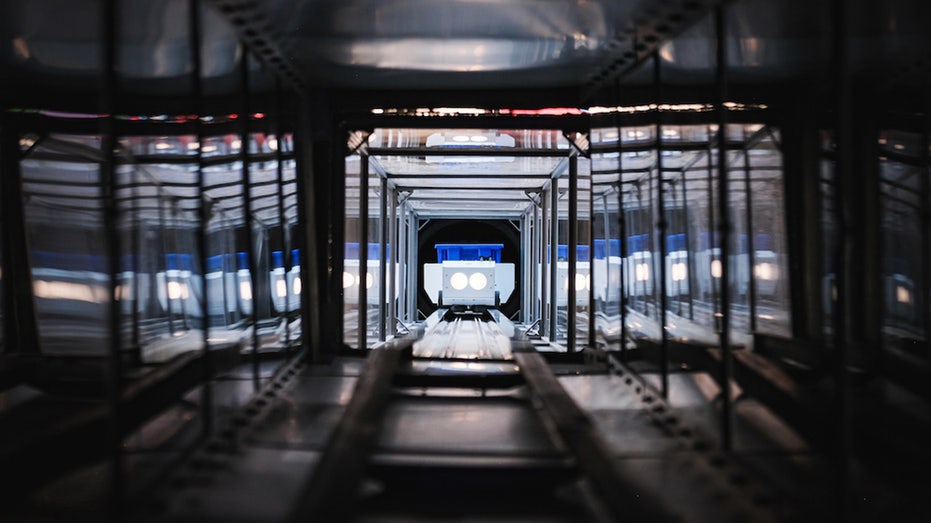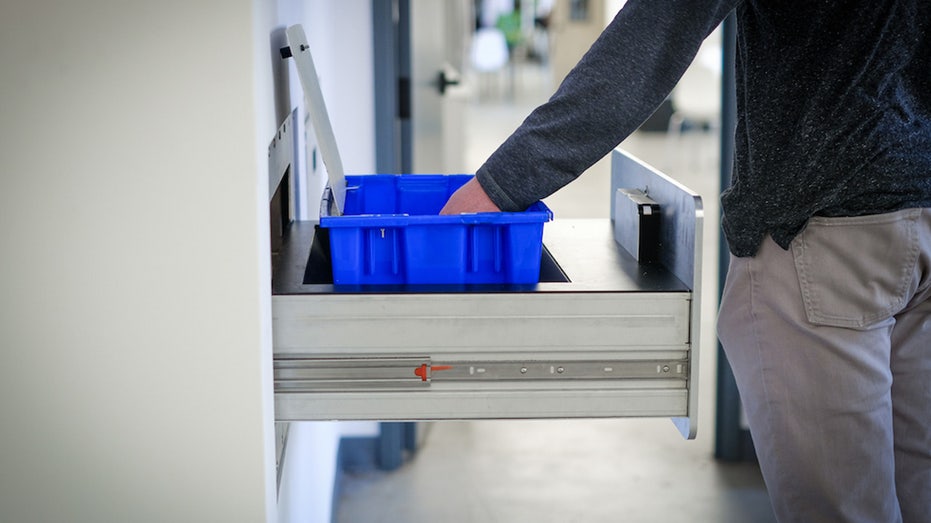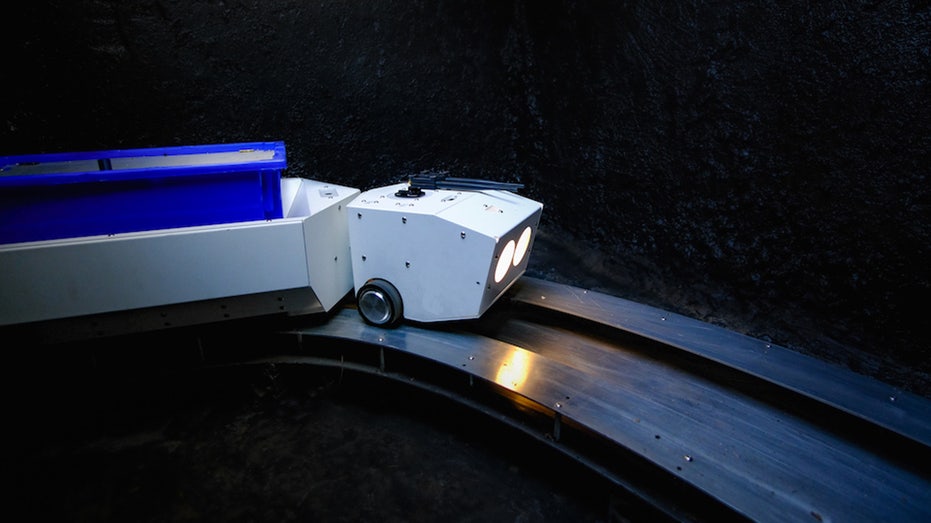Atlanta suburb becomes first to test underground consumer delivery system
Pipedream plans to create citywide systems as soon as next year
Future of takeout takes a turn as Uber Eats deploys 2K food delivery robots
Serve Robotics co-founder and CEO Ali Kashani joined ‘The Big Money Show’ to share his company’s latest food delivery robot.
Garrett McCurrach, CEO of Pipedream Labs, has set his sights on making delivery cheaper and more efficient for everyday consumers. Last week, he got one step closer to that reality when his company launched the world's first underground autonomous robot delivery system.
It is an innovation that McCurrach believes could transform online delivery, which has become a mainstay in America. While McCurrach was thrilled with the benefits of delivery, he realized it became more expensive and, in some cases, took too long. Autonomous delivery is one way to fix this, McCurrach told FOX Business. He argues creating an autonomous delivery system underground has the potential to provide even greater benefits.
Peachtree Corners, a city in Georgia powered by real-world connected infrastructure and 5G, is the first to test out Pipedream's subterranean system. For now, the system is about one mile long and connects a busy shopping center to a 25,000-square-foot smart city innovation center, so employees can test the on-demand delivery during their lunch hours.
To help paint a picture of what this looks like, McCurrach likened it to the New York City subway system, except much smaller in scale.
WENDY'S ANNOUNCES PLANS FOR UNDERGROUND AUTONOMOUS ROBOTS TO DELIVER FOOD ORDERS TO VEHICLES
"It's just like a little car carrying your package, and it just happens to be underground in a pipe," McCurrach said.
Delivery robots — or "fast autonomous cars" as McCurrach describes them – travel back and forth within the one-mile tunnel, transporting items such as food, packages, groceries and household goods faster when compared to normal delivery, according to the company.

Pipedream Labs tests a new underground delivery system in Peachtree Corners, Georgia. (Thomas Godden/Pipedream )
The tunnel is about 18 inches across, and while that space might seem small, McCurrach laughed telling FOX Business that it is big enough for him to squeeze into it. More importantly, over 95% of groceries and over 90% of e-commerce items can be transported within the space.
There is a drawer compressed into a wall at both end-points. When an order is ready for delivery, a store or restaurant can open the drawer and place the item inside for the robot to grab when it is ready. The person picking up the order will open the drawer at the opposite end and take their item.
Aside from cutting down on cost and time, the autonomous robotics system offers "numerous benefits to city residents and businesses, such as the elimination of carbon emissions, the reduction of traffic congestion and noise pollution," he added.

Pipedream Labs new underground delivery system spans from a busy shopping center in Peachtree Corners to the company's Curiosity Lab's 25,000-square-foot smart city innovation center. (Thomas Godden/Pipedream )
Peachtree Corners Chief Technology Officer Brandon Branham said in a statement that the system is a "continuation of what we’ve been able to achieve as an integrated smart city, utilizing smart infrastructure and the more innovative new technology to create a more sustainable, efficient and equitable community for all."
McCurrach is hoping to leverage this technology to transform delivery nationwide and plans to even create "a couple of citywide systems next year." Over the next few months, McCurrach and his team will evaluate which cities they will target next.

Pipedream Labs tests an underground delivery system using autonomous robots that travel through a pipe that is 18 inches across. (Thomas Godden/Pipedream)
McCurrach said that he sees a lot of companies testing out technology to make this type of delivery a reality. He said his company's goal has always been to figure out a way to make "autonomous delivery happen as soon as possible."
For one of its first products, Pipedream designed a system where autonomous robots can deliver digital food orders from a restaurant's kitchen to designated parking spots for a customer to pick up.
In May, fast-food giant Wendy's announced a partnership with the hyperlogistics company to test out the Instant Pickup portal. The portal will be positioned outside the restaurant so digital customers can drive up and pick up their orders without having to leave their car, essentially streamlining digital order pick-up points.
The company plans to partner with other brands next year, he said.
GET FOX BUSINESS ON THE GO BY CLICKING HERE
No matter what technology they implement, the goal is to make it seamless, so it does not add "an infrastructure eyesore," and to do it as fast as possible.
"That's the beauty of underground. When you're standing somewhere in a city, you really don't know whether it's there or not because it's just invisible," he said.
However, he strongly noted that there are far more ways that the industry is able to utilize autonomous delivery aside from underground tunnels.
Many companies are already working on technology to do so in other ways. For instance, Zipline, which touts itself as the world's largest autonomous delivery system, recently unveiled a new platform for precise autonomous drone delivery directly to homes in cities and suburbs.
Companies like Amazon and Walmart have also already started testing out drone delivery in certain cities across the country. In 2021, Domino's teamed up with self-driving delivery company Nuro to launch autonomous pizza delivery in Houston.





















